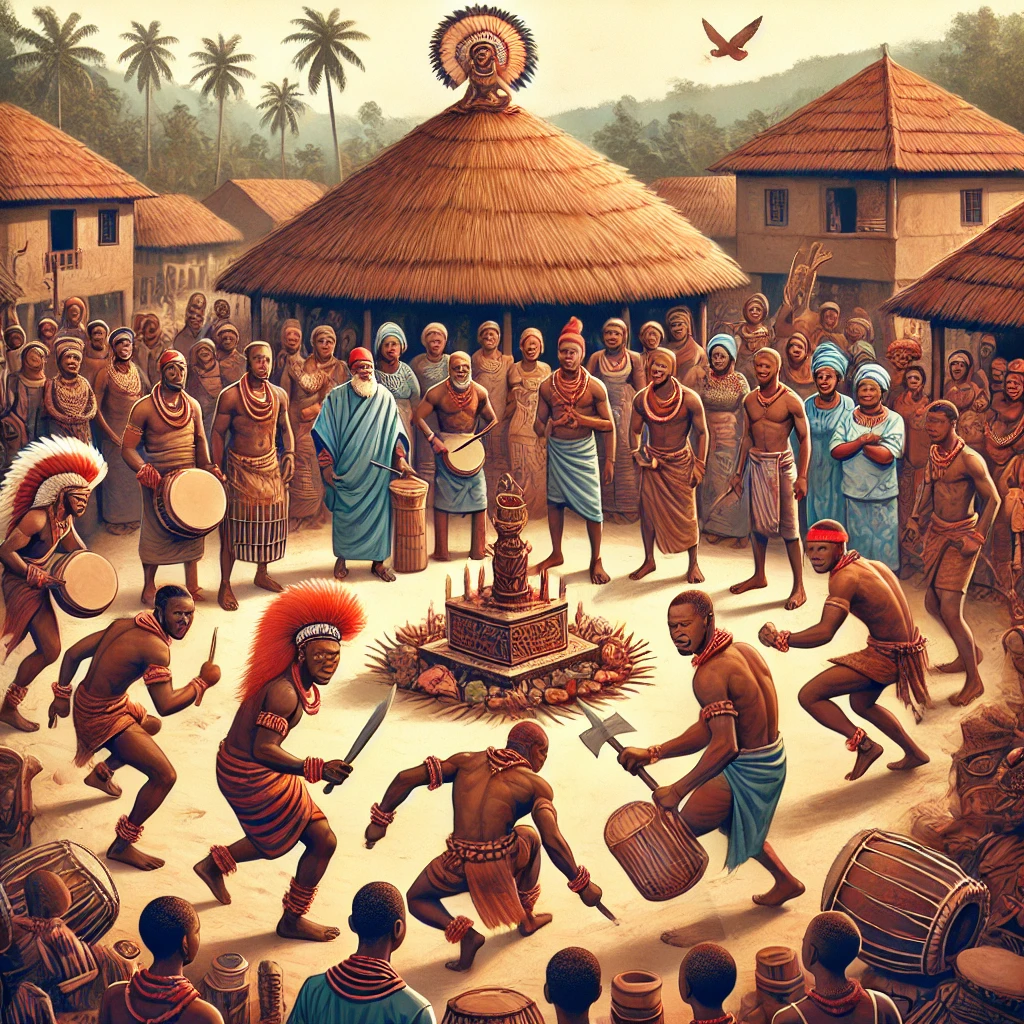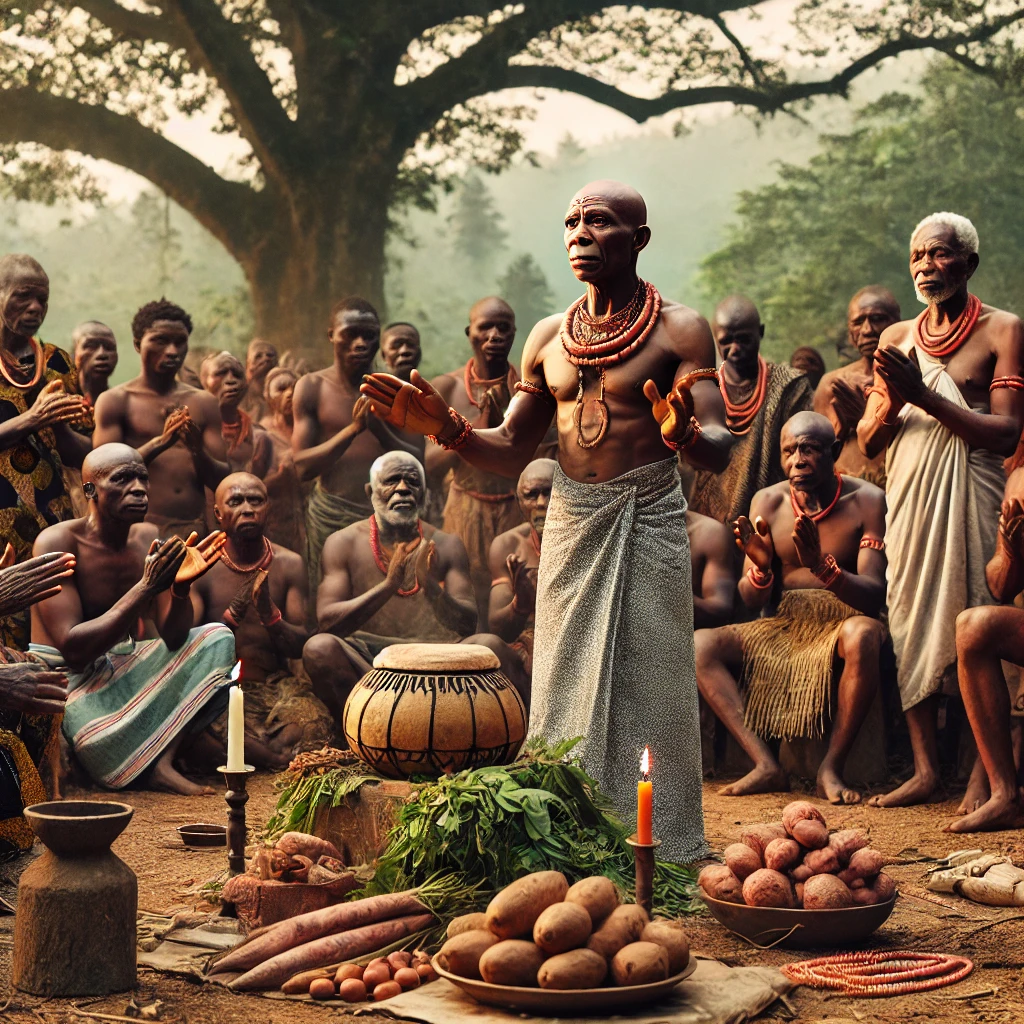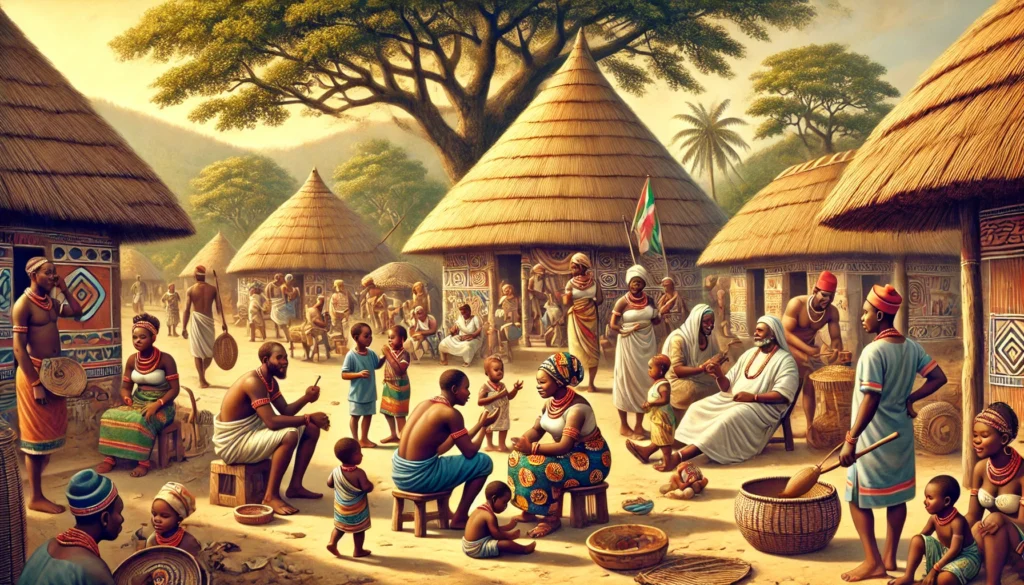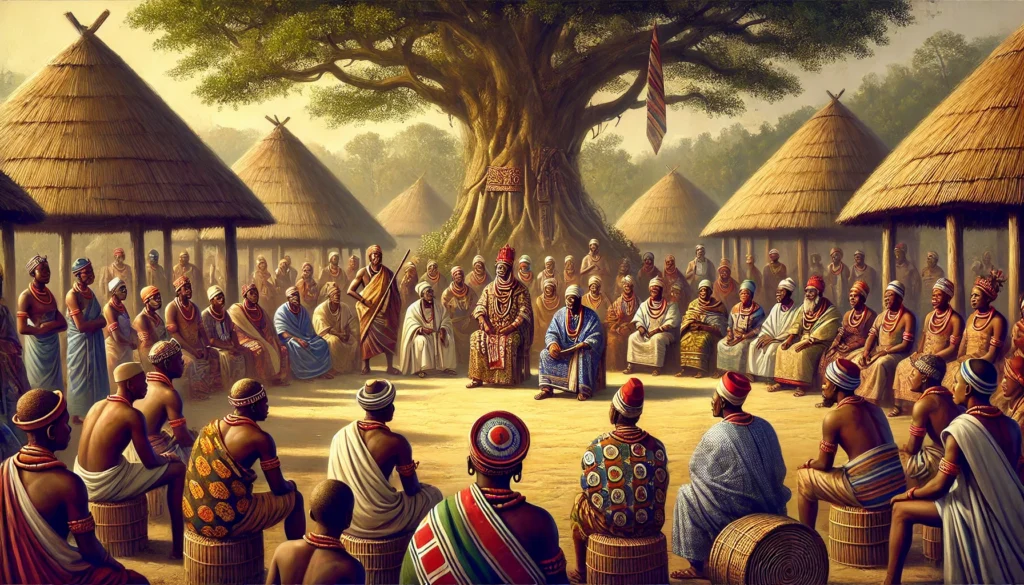The Ohafia people in Abia State, Nigeria, have a proud history that has shaped their lives for many generations. They are known as warriors, famous for their bravery and unity. In the past, Ohafia people held strong beliefs and traditions that guided their way of life, from dances that celebrated courage to honoring their ancestors. These customs were like the glue that held the community together, giving the people a sense of identity and pride.
But today, things are changing. As civilization and modern ways spread, these traditions are slowly fading away. Young people are moving to the cities, adopting new lifestyles, and losing touch with the practices that once defined Ohafia culture. This shift is not unique to Ohafia alone; across Africa, communities are grappling with the question of how to hold on to their roots in a fast-changing world.
Who Are the Ohafia People?
The Ohafia people are an Igbo-speaking community located in Abia State, southeastern Nigeria. They are known for their history as warriors—brave men who were once celebrated for their strength and courage in battle. In the old days, an Ohafia man’s honor and respect were tied to his bravery. Warriors who returned with the heads of enemies were seen as heroes, and this tradition of “headhunting” became part of Ohafia’s identity. Though headhunting is no longer practiced, the memory of these brave warriors still lives on in the community’s dances, stories, and beliefs.
Today, Ohafia people are still proud of this warrior spirit, and the community holds on to some of these customs. But civilization has brought new ways of life, and with it, new challenges to keeping these traditions alive.
Important Cultural Practices of the Ohafia People
To truly understand what is at risk, it’s essential to know the key practices that make Ohafia culture special.
The Ohafia Warrior Dance (Ikpirikpi Ogu)

One of the most celebrated traditions of the Ohafia people is the “Ikpirikpi Ogu” or war dance. This dance is more than entertainment; it’s a way to honor the bravery of the past. In the dance, young men dress in traditional warrior attire—carrying machetes and wearing animal skins—and move to the beat of drums, showcasing strength and courage. This dance reminds the Ohafia people of their warrior history, uniting them as they remember the bravery of their ancestors.
Today, however, fewer young people are interested in learning this dance. Some see it as “old-fashioned” and would rather focus on modern interests like social media, TV, and music. This has made it hard for the community to keep the warrior dance alive, and it raises questions about the future of Ohafia’s cultural identity.
Speaking with Elder Ukaha Ibe, a native of Ebem Ohafia, he noted that their traditions are the lifeblood of Ohafia, adding that for generations, they have taken pride in their warrior roots, the courage that has set them apart. According to him; In the days of their forefathers, strength and bravery were not just values—they defined them as a people.
“When we did the Ikpirikpi Ogu dance, it wasn’t merely for show; it was a sacred act to honor those who came before us and to remind the young of who they are. Now, I see fewer young people interested in these practices, and it troubles me. I fear they may forget the strength that lies in our past.”
“As we adopt Western ways, I worry that the heart of our culture is slowly being covered, like sand burying an ancient relic. Education, religion, and technology have their place, yes, and they bring advantages. But I fear they are replacing, not complementing, our old ways. The respect for our ancestors, for the land, for the customs of our elders—it is slipping away. Our children need to learn that these customs are not just ceremonies; they are part of what makes us Ohafia.”
“Even as our young people move to the cities, I urge them not to forget their roots. We cannot cut ourselves off from the tree that bore us. I have spoken to the community, encouraging the elders to teach the youth while there is still time. We need to find ways to weave our past with the future, so that our people can progress without losing what gives us strength and identity.” Ibe added.
Honoring Ancestors

The Ohafia people deeply respect their ancestors. They believe that these ancestors continue to protect the family, guiding and blessing them. In the past, families held regular ceremonies to honor the ancestors, making sacrifices and saying prayers led by the elders of the community. This was an important part of Ohafia’s spiritual life, giving people a connection to their roots.
But now, with the influence of Western religion and civilization, these practices are fading. Many young Ohafia people have embraced Christianity, which often conflicts with traditional beliefs about ancestor worship. Some now see the old ways as “pagan” or “uncivilized.” As a result, fewer families hold ancestral ceremonies, and the bond between the living and the ancestors grows weaker.
Sunday Ukonu of Okon Aku Ohafia (the land of great kings) mentioned that “Growing up in Ohafia, our customs and history were a source of pride. I remember watching the Ikpirikpi Ogu dance, feeling my heart swell with pride as young men stepped out in honor of our warrior past.”
“But as I got older, I noticed many of my peers were drawn more to what they saw on television and social media than to our traditions. Some even say that these customs don’t matter anymore, that they’re old-fashioned. It’s disheartening, but it’s understandable. Civilization brings new opportunities, and many of us want to explore the world beyond Ohafia.”
“When I was younger, I often saw our fathers believe that the ancestors guided and protected our families. Regular ceremonies honored these ancestors, with sacrifices and prayers led by the elders. This was more than ritual—it connected us to something greater, giving us a sense of protection and purpose. Sadly, now, fewer people honor these ceremonies, and younger ones often see them as ‘unnecessary.’ We risk losing a part of ourselves.”
“Still, I believe that there is a way to have both. We can learn from Western ways without discarding our heritage. It is possible to hold a phone in one hand and a machete in the other, to use technology while still embracing our customs. But it takes intentional effort. When I speak to the youth, I remind them that there is pride and power in our culture. We are not just like any other people; we are Ohafia, and there’s a legacy we have to uphold.” He added.
Ukonu went further to say that he believe their generation can lead this balance if they understand that modernity doesn’t mean abandonment of tradition, adding that some of them are already taking steps, organizing festivals, preserving the dance, encouraging respect for their elders.
Communal Living and Strong Bonds

Another unique thing about the Ohafia people is their strong sense of community. In the past, neighbors lived closely and supported each other. People shared resources, worked on each other’s farms, and helped to raise each other’s children. This way of life created a tight-knit community where everyone felt a sense of belonging.
However, civilization has brought a more individualistic lifestyle. People now focus more on their personal goals and work, which has affected the communal spirit. Many young people leave for the cities, seeking work and a different life, and when they return, they find it hard to fit back into the old ways of community life.
While sharing her experience, Nene Akuma, an Asaga Ohafia woman based in Calabar, Cross State noted that she remember a time when life in Ohafia was simpler, when they were one big family.
“The village felt like a single household—everyone knew each other, and we shared everything. Back then, we honored our ancestors regularly, and we believed they watched over us, that they blessed us. But now, with so much influence from outside, those traditions are becoming distant memories. My children question our ways, they call them ‘pagan’ or say they’re unnecessary, things that do not matter in a modern world.”
“When I hear that, it pains me because these traditions were never just rituals—they were our way of staying connected to the past. I fear we are losing that connection, that link to the wisdom of those who came before us. Christianity and Western schooling have their place, but our customs should not be discarded like worn-out clothes. There is beauty and meaning in how we honor our ancestors, how we gather and share, how we support one another as a community.”
“Now, when I look around, I see young people rushing off to the cities, even though I am also guilty of it. They come back changed, sometimes distant. The closeness we had is fading; everyone wants to be by themselves, to focus only on their own lives. I wish we could bring back the days when people took pride in their culture, when the young honored the old ways. We may walk in different times, but without these practices, we risk becoming strangers to ourselves.”
Traditional Justice System

In the past, the Ohafia community relied on elders to settle disputes and maintain peace. The elders used wisdom passed down through generations to judge cases fairly. People respected their authority, and justice was seen as a community affair.
Now, with the influence of the formal court system and police, many people prefer to go through modern legal channels rather than seeking judgment from elders. This has weakened the role of the elders in the community, and the respect once given to them is slowly fading.
The Influence of Civilization on Ohafia Culture
The spread of Western civilization has brought both good and bad changes to the Ohafia community. Education, healthcare, and technology have improved, but they have also made it harder for people to keep their traditions alive.
Western Education and Religion
Western education has become widespread in Ohafia, especially among young people. This education system often encourages critical thinking, making young people question their culture and sometimes reject traditional practices. Christianity, which teaches different beliefs from traditional practices, has also spread widely, making many young people view ancestral worship and some cultural practices as “wrong” or “old-fashioned.”
Urban Migration
Many young Ohafia people are now moving to cities like Lagos, Abuja, and Port Harcourt in search of better opportunities. While they send money home, they often lose touch with the customs and traditions of Ohafia. When they return, they sometimes find it hard to connect with the traditional ways, choosing to adopt urban lifestyles instead.
Social Media and Technology
Social media and television have brought the world to Ohafia. Young people now watch foreign shows, follow global trends, and pick up new ideas from around the world. They are more interested in modern fashion and music than traditional songs and attire. This exposure has made some of them see their own culture as outdated.
The Fight to Preserve Ohafia Culture
Despite these challenges, there is hope. Some members of the Ohafia community are working hard to keep their culture alive. Elders encourage young people to learn the warrior dance, honor the ancestors, and keep the communal values that have defined Ohafia for generations.
Cultural groups and community leaders are also organizing festivals and events where people can celebrate and remember their heritage. Some young people are beginning to realize the importance of their culture and are proudly participating in traditional practices. These efforts are helping to strengthen the voices of the Ohafia people, showing that even as civilization changes their way of life, they can find ways to stay connected to their roots.
As Africa grows and develops, it’s important to remember that every step forward is built on the foundation of the past. Even as we move forward, we must carry our stories, values, and traditions with us. These cultural roots are not just part of our history; they are part of what makes Africa unique, giving the continent its soul and strength.

